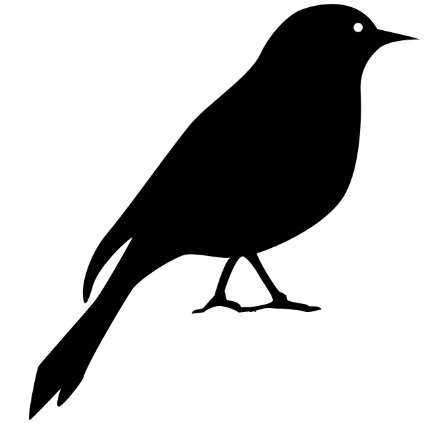
Writing Career
How I became a Writer and Published Author
Dear Reader,
Linda and Rich
On Our Wedding Day
Thank you for your interest in how I became an author. In telling my story I will provide tips for your own journey to writing. I turned 20 a couple months before this wedding photo was taken. Doesn’t it look like my husband, Rich, and I are looking to the future? Little did we know of the remarkable life we would share. Rich, a graduate of Worcester Polytechnic Institute, had an impressive job as an electrical engineer in Boston, and I had a year of college to finish. I enrolled at a university there and transferred the credits back to the University of Massachusetts. I graduated, a double major in biology and journalism from U.Mass. It was a tough year financially as much of Rich’s salary paid for my tuition.
A huge benefit of our marriage: I escaped my violent and brutal father. He felt that educating a girl was a waste. You can read about my childhood in my memoir as soon as it is published. In the meantime, vignettes with similar stories not in my memoir appear in the Story tab of my website.
Tip 1 Becoming a writer: Go to college and/or take writing classes.
Linda’s College Graduation from U.Mass
I was always writing-- the school newspaper in high school and college, stories for children, short stories for adults, and stories to read aloud to my younger brother. I wrote regularly in my diary and later in a journal.
My seventh grade English teacher, Miss Solomon, inspired me to get a college degree and become a writer. She assigned for the class to write an autobiography. I wrote that I did not have a very interesting life. Omitting the abuse, I described my world of reading, my love of nature, and visiting my Finnish maternal grandmother, Aiti, and helping her on their farm. I wrote that one day I dreamed of being a writer, and Miss Solomon jumped on that. She wrote in her red pen, “You have a VERY interesting life. You CAN become a writer. You are a very good writer. First you should plan to go to college.”
Fish Research on
the Wildlife Refuge
After college, I taught Biology at a Massachusetts high school for three years, and then Rich and I decided to pursue advanced degrees. Ohio State University accepted us into their graduate school, Rich in a PhD program in Mathematics, and I in the Department of Zoology. Living in married student housing and figuring out how to manage our time was an intense, but wonderful time. Caring for a toddler son while being full-time students was a challenge, but we had September off from our studies. During this time we took off in our orange VW camper, Pumpkin, for the West. We camped in National Parks of nearly all the western states and grew to love this part of the country.
After Rich was awarded his PhD, he accepted a position teaching at a small college in western Pennsylvania. I earned a Master of Science. At that time, women were not accepted into PhD candidacy. In fact, I was the only woman in the zoology graduate program. Before me there had been one, and after me, another—one woman in the department was the policy.
Tip 2 Becoming a Writer: Get experience on the job and in your leisure activities related to your writing dream.
Linda & Family at Rocky Mountain National Park
A second child, a daughter came along, and I also began working at a nearby wildlife refuge. The Equal Rights Amendment was passed in 1972, giving women the right to the same jobs as men as long as they were qualified. With a fresh degree in zoology and wildlife management, I was qualified. I was the first woman hired in a professional position by the US Fish and Wildlife Service. Paddling a canoe to check wood duck nest boxes, banding ducks, and taking beaver census were a few of my responsibilities.
I left this job (another long “Story” you will eventually read about) and was a life science teacher for junior high and environmental science for a high school. One summer I was a Park Ranger in Rocky Mountain National Park. Our family of four lived in Park housing, a tiny cabin set at the base of the mountains. Some mornings, we woke to deer peering in our windows or a fox on our doorstep—all good fodder for my journal.
In spite of my enjoyment of work in the wild, I knew that my path to writing a biology book was teaching biology. So, I returned to teaching in Pennsylvania. I learned what excited students in the classroom, what made them tick, and what turned them off. I continually developed new ideas for teaching based on how students responded.
At the same time, we continued during the summers to explore the West. Our children learned to love hiking and camping as much as we did. When our daughter was learning to talk she perched in a pack on Rich’s back as we hiked and camped. Her first words were—in order: flower, tree, mountain, cloud, and rain. This baby was destined to be nature’s child!
Linda, Rich and
our Baby Girl
Tip 3 Becoming a Writer: Explore all options for writing in your area. Take any writing job to build your resume, even if it is not your “dream” writing job. Practice. Write short stories. Write a magazine article about an area of your expertise: piano tuning, bicycle repair, your trip to Italy, the history of a certain aspect of your town. Keep a journal.
Small town western PA was not a hot-bed of writing opportunities; but, while teaching, I scouted out some work writing a variety of pamphlets for the town. The pamphlets included developments the town wanted people to know about: historic sites, sites where endangered plants lived, landfill pros and cons, water resources, nuclear energy plant pros and cons and others. The local newspaper distributed these pamphlets with normal delivery and listed, as author, a male member of the Planning Commission. When I saw the final work in print and asked why my name did not appear, the answer was, “People will not believe it if a woman wrote it.” I also noticed that all the authors of science textbooks were men.
Linda Lundgren
With My Baby Son
In 1981 we moved to Colorado, even farther away from my dad, where Rich accepted a faculty position with the University of Colorado, and I undertook a position with the US Department of Agriculture working on a research project on a midge, a type of fly, that carries the virus causing blue-tongue disease in cattle. In addition, I wrote an instruction manual for disabled persons to identify and process a variety of flies by using a microscope to determine which were carrying the blue-tongue virus.
Tip 4: Work hard to find writing jobs by going to conferences in your area of expertise, attending workshops, and scouring online possibilities. Advertise on social media and in print media. Network with others who have landed writing assignments. Volunteer to write for non-profits. All will help to build your resume and credibility as a writer.
Linda Lundgren
With My Baby Daughter
After taking a class required for Colorado teaching certification, I began teaching Life Science and eventually Biology. In addition, I explored avenues for writing possibilities in the Denver area. I had to make a concerted effort to find these assignments. For example, I participated in a conference for Project Wild, an organization that produces classroom environmental activities for students. I knew this group was writing new materials. While there I found another similar partnership, Food, Land, and People, currently writing classroom activities related to agriculture. By attending that conference I landed a writing project with FL&P that was right up my alley.
I attended another public meeting about the newly opened Rocky Mountain Arsenal Wildlife Refuge and secured another writing assignment: A teacher’s manual of environmental activities to do on the Refuge, and another outdoor project book for the newly opened Two Ponds National Wildlife Refuge. By keeping up with people in wildlife refuges, I discovered that a refuge in North Dakota wanted a guidebook of laboratory exercises for teachers about the importance of fire in natural areas.
Student Based
Xeriscape Project
My writing resume was filling. I wrote a variety of ecology activities for a mountain summer school program, and for the Denver Water Board, a compilation of activities related to water conservation. At the same time, working with my Biology students, I developed and carried out a xeriscape landscape project on school grounds, and taught students how to make a guidebook about xeriscaping in Colorado.
I contributed lab activities and edited labs written by other teachers for a laboratory manual titled “Shoe String Labs,” that could be done on a very low budget in biology classrooms.
Tip 5 Becoming a Writer: Teach others to write. It will make you a stronger writer. Volunteer to be a “Reader” to help high school teachers grade students’ work. Some school districts pay for this work. Teach in programs that help people from other countries learn English.
Through my years of teaching science I also taught language arts classes because my teaching certification was in both science and English. Reviewing and correcting student writing certainly reinforces rules of grammar, punctuation, spelling, and creativity in any writer.
Linda Lundgren
Present Day
Tip 6 Becoming a Writer: Be in the right place and do the right thing at the right time.
Light the fireworks! Raise the flag! Throw confetti! Applaud! I, with two coauthors, wrote a biology book. How did it happen? A beginning so simple. I was at the right place at the right time and did the right thing.
1. A postcard came asking if I was willing to fill out a one page questionnaire about the biology book I was using in class. Answer: Of course, and I added a letter to the publisher recommending a variety of positive changes that would make the current book better, and also my ideas for writing a new book.
2. A letter from the publisher arrived asking if I was willing to review some chapters of the current book in revision stages. Yes, I critiqued carefully line by line—and also sent a letter with my ideas for writing a new book.
3. A letter arrived asking if I was willing to go to a meeting of CEO, managing editors, editors, and marketing experts to discuss my ideas for the new book. Bring your writing and teaching credentials they said—and write a sample chapter. Yes! Yes! Yes! The rest is history—more than thirty years of writing and revising a biology book, editing other science materials, writing a manual titled, Cooperative Learning in the Biology Classroom, and writing lab activities for a variety of science programs.
4. And then on to the memoir—after a lifetime of honing writing skills.
